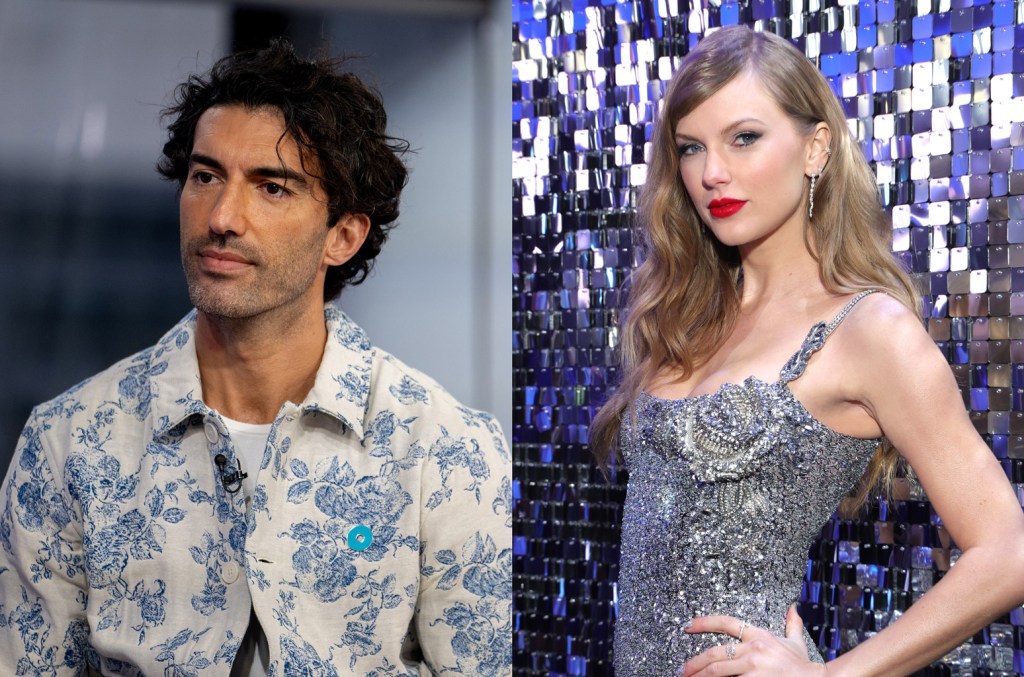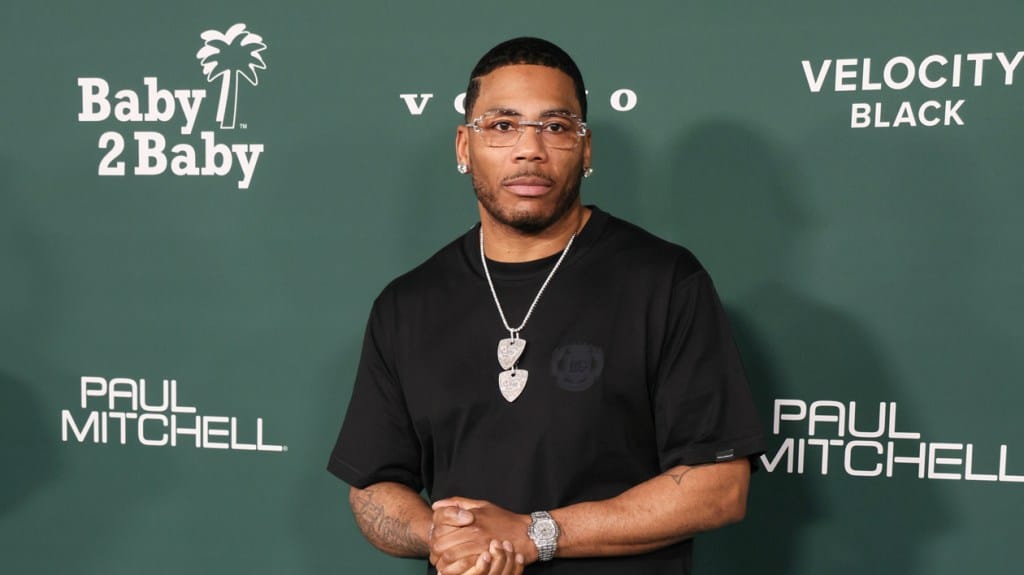Legal
Page: 39

Justin Baldoni filed a bombshell $400 million lawsuit against Blake Lively and Ryan Reynolds Thursday (Jan. 16), and he appears to have referenced Taylor Swift in the filing.
In a 179-page suit obtained by Billboard, the actor-director accused the Gossip Girl actress — who starred in It Ends With Us, which Baldoni directed — and her famous husband of civil extortion, defamation and invasion of privacy, alleging the couple hijacked his vision for their film before trying to destroy his image with false allegations of sexual harassment. In one of several complaints raised in the filing, Baldoni implies that Lively at one point attempted to use the influence of a “megacelebrity friend” to pressure him to comply with Lively’s ideas for the It Ends With Us script.
A screenshot of text messages between Baldoni and Lively also included in the filing appears to confirm that the famous friend is Swift. “Was working on rooftop scene today, I really love what you did,” Baldoni at one point texted Lively. “Makes it so much more fun and interesting. (And I would have felt that way without Ryan and Taylor).”
Trending on Billboard
In other screenshots, Lively refers to Reynolds and her famous friend as “my most trusted partners” who have “established themselves as absolute titans as writers and storytellers outside of their primary gig — just singing or just acting.”
Billboard has reached out to reps for Baldoni, Swift, Lively and Reynolds for comment.
Also on the topic of the megacelebrity friend, Baldoni’s attorneys wrote that Lively at one point summoned him to her New York penthouse to talk about her version of the script.
“Baldoni was greeted by Ryan Reynolds, who launched into enthusiastic praise for Lively’s version of the scene,” the filing says of the meeting. “Hours later, as the meeting was ending, a famous, and famously close, friend of Reynolds and Lively, walked into the room and similarly began praising Lively’s script. Baldoni understood the subtext: he needed to comply with Lively’s direction for the script.”
“Later, Baldoni felt obliged to text Lively to say that he had liked her pages and hadn’t needed Reynolds and her megacelebrity friend to pressure him,” the suit continues. “The message could not have been clearer. Baldoni was not just dealing with Lively. He was also facing … two of the most influential and wealthy celebrities in the world, who were not afraid to make things very difficult for him.”
Baldoni is seeking $400 million from Lively and Reynolds for “deploying their enormous power to steal an entire film right out of the hands of its director and production studio.” His lawsuit comes about a month after Lively filed her own lawsuit against Baldoni, accusing the director of harassment on set and coordinating a smear campaign against her after the film was finished.
In December, Baldoni sued The New York Times for $250 million over its coverage of the fallout between him and Lively.
Method Man has denied allegations of assault at a gym in Staten Island as reported by the New York Post on Thursday (Jan. 16). A rep for Meth — born Clifford Smith — tells Billboard: “Mr. Smith categorically denies the allegations as reported and has not been the subject of an arrest by any law […]
Nelly is asking a federal judge to punish the lawyers who recently sued him over his 2000 debut album Country Grammar, arguing the case is “objectively frivolous” and should “never have been brought in the first place.”
The lawsuit, filed last year, claims Nelly (Cornell Haynes) has failed to pay his former St. Lunatics bandmate Ali for his work on the album. But in a new motion Thursday (Jan. 16), Nelly’s attorneys say those decades-old allegations are so “baseless” that Ali and his lawyers must face legal penalties for filing them.
“Plaintiff and his counsel should be sanctioned in the full amount … that Haynes has been forced to incur in defending this action,” the rapper’s lawyer Ken Freundlich writes. “That is because plaintiff’s claims should never have been brought in the first place.”
Trending on Billboard
Freundlich says that if Ali’s attorneys (Gail M. Walton and Precious Felder Gates) had done “even the barest factual investigation and legal research,” they would have found fatal flaws in the lawsuit — most notably that it was filed years after the statute of limitations had expired. Instead, he says they doubled down after such shortcomings were exposed.
“Plaintiff and his counsel’s failure to withdraw their fatally flawed claims, and their insistence on pressing forward with frivolous assertions and legal arguments require a substantial sanction,” Nelly’s lawyers write. “[This is] not only to compensate Haynes for the substantial legal fees and expenses he has been forced to incur in defending this action, but also to deter plaintiff and others who would flout the Copyright Act’s rules and clear undisputed court precedent.”
In a response statement to Billboard on Thursday, Felder Gates said Ali’s legal team would “vehemently defend” against Nelly’s motion and would continue to pursue their client’s “undeniable right to be properly compensated” for his alleged work on Country Grammar: “It is both unethical and unlawful for artists and their corporate partners to exploit the creative work of writers, deceiving them out of their rightful credits and fair compensation.”
Nelly rose to fame in the 1990s as a member of St. Lunatics, a hip-hop group also composed of St. Louis high school friends Ali (Ali Jones), Murphy Lee (Tohri Harper), Kyjuan (Robert Kyjuan) and City Spud (Lavell Webb). With the June 2000 release of Country Grammar — which spent 5 weeks atop the Billboard 200 — Nelly broke away into a solo career that later reached superstar heights with his 2002 chart-topping singles “Hot in Herre” and “Dilemma.”
In a copyright lawsuit filed in September in Manhattan federal court, all four of those bandmates accused Nelly of cheating them out of compensation for contributions they allegedly made to Country Grammar. They claimed that he had “manipulated” them into falsely thinking they’d be paid, then never made good on the promises.
But a month later, the lawsuit took a strange turn: Nelly’s lawyers filed a letter warning that Lee, Kyjuan and Spud had never actually wanted to sue Nelly and that they had not given legal authorization to the lawyers who filed the lawsuit to include them as plaintiffs.
“They are hereby demanding you remove their names forthwith,” Nelly’s lawyers wrote in a letter to Walton. “Failure to do so will cause them to explore any and all legal remedies available to them.”
In November, Ali’s attorneys filed an updated version of the lawsuit listing only him as a client and vowed to fight on: “While others may have chosen to withdraw, his dedication to his artistic legacy and his rights as a creator remains unwavering,” Felder Gates said in a statement to Billboard at the time.
But in Thursday’s motion, Nelly’s attorneys argue that the case has deeper problems than simply improper plaintiffs.
They say the lawsuit was filed many years after the Copyright Act’s three-year statute of limitations had expired since Nelly had clearly “repudiated” Ali’s demand for payment years before he filed his case. And they say that when Ali’s attorneys refiled the case under just his name, they tried to sneakily remove certain dates to “hide” that fatal flaw.
“Plaintiff omits the dates of repudiation in his [amended lawsuit],” Freundlich says. “This ruse does not save the claim from being time-barred. In fact, all it does is elucidate how Plaintiff and his counsel are engaging in sanctionable conduct.”
As a penalty, Nelly’s lawyers want the judge to order Ali and his attorneys to repay all legal fees and other costs that the star has incurred defending the case. Even for just a few months of copyright litigation, that figure could reach thousands of dollars when top law firms are involved in a case.
01/16/2025
Drizzy has filed accusations against Universal Music Group, Spotify and more over the diss track.
01/16/2025
Universal Music Group (UMG) is firing back at Drake’s lawsuit accusing the music giant of defaming him by promoting Kendrick Lamar’s diss track “Not Like Us,” calling the case “illogical” and accusing Drake of trying to “weaponize the legal process.”
In a strongly-worded statement issued Wednesday afternoon (Jan. 15), UMG flatly denied the allegations in Drake’s lawsuit — filed earlier in the day in New York federal court — and sharply criticized its superstar artist for bringing it.
“Not only are these claims untrue, but the notion that we would seek to harm the reputation of any artist—let alone Drake—is illogical,” the company wrote. “We have invested massively in his music and our employees around the world have worked tirelessly for many years to help him achieve historic commercial and personal financial success.”
Trending on Billboard
The lawsuit claims that UMG knew that “inflammatory and shocking allegations” in Lamar’s scathing diss track were false, but chose to place “corporate greed over the safety and well-being of its artists.”
But in UMG’s response, the music giant said that Drake himself had often engaged in rap beefs featuring bombastic claims about his opponents — the very thing that he now claims is illegal.
“Throughout his career, Drake has intentionally and successfully used UMG to distribute his music and poetry to engage in conventionally outrageous back-and-forth ‘rap battles’ to express his feelings about other artists,” UMG wrote. “He now seeks to weaponize the legal process to silence an artist’s creative expression and to seek damages from UMG for distributing that artist’s music.”
Drake’s case repeatedly makes clear that he is not suing Lamar himself, and that he holds UMG responsible for releasing a song that it allegedly knew was defamatory.
In its statement, UMG denied that claim — and said it would defend Lamar or any other artist if they were hit with such a lawsuit.
“We have not and do not engage in defamation—against any individual,” UMG said in the statement. “At the same time, we will vigorously defend this litigation to protect our people and our reputation, as well as any artist who might directly or indirectly become a frivolous litigation target for having done nothing more than write a song.”
Drake and Lamar exchanged stinging diss tracks last year, culminating in Lamar’s knockout “Not Like Us” — a track that savagely slammed Drake as a “certified pedophile” and reached the top of the charts. In November, the star filed stunning legal petitions suggesting that he planned to sue UMG, claiming that the company had artificially boosted a song that contained defamatory statements about him.
Earlier on Wednesday, Drake made good on those threats — filing a federal lawsuit that claimed UMG had boosted a “false and malicious narrative” that the star rapper was a pedophile, severely harming his reputation and even putting his life in danger.
“UMG intentionally sought to turn Drake into a pariah, a target for harassment, or worse,” the star’s lawyers wrote in their complaint. “UMG did so not because it believes any of these false claims to be true, but instead because it would profit from damaging Drake’s reputation.”
The accusations — and Wednesday’s response statement — represent a remarkable rift between the world’s largest music company and one of its biggest stars. Drake has spent his entire career at UMG, first through signing a deal with Lil Wayne’s Young Money imprint that was distributed by Republic Records, then by signing directly to Republic.
Drake filed a lawsuit against UMG for defamation over Kendrick Lamar’s “Not Like Us.” Keep watching for the full details of the case. Tetris Kelly:Is Drake ending his legal beef against UMG and Kendrick? From ending the petition to filing a lawsuit, we got the story. The Canadian rapper has filed an official lawsuit on […]
Drake has filed a lawsuit against Universal Music Group (UMG) over allegations that the music giant defamed him by promoting Kendrick Lamar’s diss track “Not Like Us,” claiming the label boosted a “false and malicious narrative” that the star rapper was a pedophile and put his life in danger.
Hours after his attorneys withdrew an earlier petition, they filed a full-fledged defamation lawsuit Wednesday against his longtime label – claiming UMG knew Lamar’s “inflammatory and shocking allegations” were false but chose to place “corporate greed over the safety and well-being of its artists.”
“UMG intentionally sought to turn Drake into a pariah, a target for harassment, or worse,” the star’s lawyers write in a complaint filed in Manahttan federal court. “UMG did so not because it believes any of these false claims to be true, but instead because it would profit from damaging Drake’s reputation.”
Trending on Billboard
In one of the lawsuit’s most vivid accusations, Drake claims that the release of “Not Like Us” has subjected him to risk of physical violence, including a drive-by shooting on his Toronto area home just days after the song was released.
“UMG’s greed yielded real world consequences,” his lawyers write. “With the palpable physical threat to Drake’s safety and the bombardment of online harassment, Drake fears for the safety and security of himself, his family, and his friends.”
Notably, the case does not target Lamar himself — a point that Drake’s attorneys repeatedly stress in their filings.
“UMG may spin this complaint as a rap beef gone legal, but this lawsuit is not about a war of words between artists,” Drake’s attorneys say.
A spokesman for UMG did not immediately return a request for comment.
Wednesday’s lawsuit is yet another dramatic escalation a high-profile beef that saw Drake and Lamar exchange stinging diss tracks last year, culminating in Lamar’s knockout “Not Like Us” — a track that savagely slammed Drake as a “certified pedophile” and became a hit in its own right.
Drake shocked the music industry in November when he filed petitions suggesting he might sue over the fued — first accusing UMG and Spotify of an illegal “scheme” involving bots, payola and other methods to pump up Lamar’s song, then later claiming that the song had been defamatory. But those cases were not quite full-fledged lawsuits, and Drake withdrew one of them late on Tuesday.
Now it’s clear why: In Wednesday’s lawsuit, he formally sued UMG over the same alleged scheme, claiming the label “unleashed every weapon in its arsenal” to drive the popularity of Lamar’s track even though it knew the lyrics were “not only false, but dangerous.”
“With his own record label having waged a campaign against him, and refusing to address this as a business matter, Drake has been left with no choice but to seek legal redress against UMG,” his lawyers write.
The filing of the case represents a doubling-down for Drake, who has been ridiculed in some corners of the hip-hop world filing legal actions over a rap beef. It also will deepen further his rift with UMG, where the star has spent his entire career — first through signing a deal with Lil Wayne’s Young Money imprint, which was distributed by Republic Records, then by signing directly to Republic.
In his complaint, Drake’s lawyers said the label opted to boost “Not Like Us” despite its “defamatory” lyrics because they saw it as a “gold mine” — partly because UMG owns Lamar’s master recordings outright, but also because it could use the song to hurt Drake’s standing in future contract talks.
“UMG’s contract with Drake was nearing fulfillment … UMG anticipated that extending Drake’s contract would be costly,” his lawyers write. “By devaluing Drake’s music and brand, UMG would gain leverage to force Drake to sign a new deal on terms more favorable to UMG.”
This is a breaking news story and will continue to be updated with additional details as they become available.
Drake has dropped his legal action accusing Universal Music Group (UMG) and Spotify of artificially inflating the popularity of Kendrick Lamar’s diss track “Not Like Us,” less than two months after he first filed it.
The action, filed in November, accused UMG and Spotify of an illegal “scheme” involving bots, payola and other methods to pump up Lamar’s song — a track that savagely attacked Drake amid an ongoing feud between the two stars.
But in a filing Tuesday (Jan. 14) in Manhattan court, Drake’s company Frozen Moments LLC said it would voluntarily withdraw the action “without costs to any party.” Another similar petition, filed in Texas against UMG and iHeartRadio alleging Lamar’s song was defamatory, remains pending.
Trending on Billboard
An attorney for Drake did not immediately return a request for comment on why the case was dismissed. A spokesman for UMG declined to comment. A representative for Spotify did not immediately respond to a request for comment.
Drake shocked the music industry in November when he went to court — a remarkable twist in a high-profile beef that saw Drake and Lamar exchange stinging diss tracks over a period of months earlier in the year. That a rapper would take such a dispute to court seemed almost unthinkable at the time, and Drake has been ridiculed in some corners of the hip-hop world for doing so.
The actions also represented a stunning rift between Drake and UMG, where the star has spent his entire career — first through signing a deal with Lil Wayne’s Young Money imprint, which was distributed by Republic Records, then by signing directly to Republic.
The New York petition accused UMG of violating the Racketeer Influenced and Corrupt Organizations Act, the federal “RICO” statute often used against organized crime. He accused Spotify of participating in the scheme by charging reduced licensing fees in exchange for recommending the song to users. A day later, he filed a similar action in Texas, suggesting that UMG had legally defamed him by releasing a song that “falsely” accused him of being a “sex offender.”
The filings were not full-fledged lawsuits, but rather “pre-action” petitions aimed petition seeking to secure information so that a full lawsuit can be filed.
UMG had not yet responded to either action. But in a stinging response last month, Spotify called the allegations “false” and flatly denied that it struck any deal with UMG to support Lamar’s song. And the company took aim at the unusual way he filed the allegations, saying he had done so because his allegations were too flimsy to pass muster in an actual lawsuit and would have been quickly dismissed: “This subversion of the normal judicial process should be rejected.”
In Tuesday’s filing, attorneys for Drake said they had met with both UMG and Spotify ahead of the withdrawal. Spotify had “no objection” to the dismissal, according to the filing, but the record “reserved its position” about whether it would challenge the move in some way.

Attorneys for Sean “Diddy” Combs claim in new legal filings that key evidence disclosed by prosecutors — videos of the alleged “freak off” parties at the center of case — show only consensual sex and “fundamentally undermine” the charges against him.
In a motion filed Tuesday (Jan. 14), the star’s lawyers say they must be given more expanded access to the videos because they amount to “exculpatory evidence” — crucial material that must be handed over to a defendant if it can help prove their innocence.
Far from the “sensationalistic media reports,” Diddy’s attorneys write, the videos at issue “unambiguously show that the person alleged in the indictment to be Victim-I not only consented but thoroughly enjoyed herself.”
“There are no secret cameras, no orgies, no other celebrities involved, no underground tunnels, no minors, and not so much as a hint of coercion or violence,” lead defense attorney Marc Agnifilo writes. “Far from the government’s lurid descriptions, the videos show adults having consensual sex, plain and simple.”
The arguments came in a motion complaining that prosecutors have only given Combs’ lawyers limited chances to view the tapes, rather than handing over actual copies. Now that they’ve seen them, the star’s lawyers say they need full access so they can use the videos as central evidence in their defense: “Mr. Combs is entitled to put this evidence to use for trial.”
At times, Tuesday’s filing sharply criticized the government’s case, arguing that prosecuting Diddy for partaking in the “clearly consensual sex” captured on the tapes was “both sexist and puritanical” — a means of policing the behavior of consenting adults behind closed doors.
“The government’s theory perpetuates stereotypes of female victimhood and lack of agency,” Combs’ attorneys write. “The prosecution reflects a paternalistic view that the government is here to protect women, who cannot be trusted to make their own decisions about sex, and are not capable of consenting to sex that the prosecutors view as outside the norm.”
Combs was indicted in September, charged with running a sprawling criminal operation aimed at satisfying his need for “sexual gratification.” The case centers on the elaborate “freak off” parties mentioned in Tuesday’s filing, in which prosecutors say Combs and others would allegedly ply victims with drugs and then coerce them into having sex. He also stands accused of acts of violence and coercion aimed at keeping victims silent and compliant.
A trial is currently set to start on May 5. If convicted on all of the charges, Combs faces a potential life prison sentence.
This is The Legal Beat, a weekly newsletter about music law from Billboard Pro, offering you a one-stop cheat sheet of big new cases, important rulings and all the fun stuff in between.
This week: TikTok – and the music industry – wait for a Supreme Court ruling on the app’s fate; Megan Thee Stallion wins a new civil restraining order against Tory Lanez; Travis Scott and SZA face a copyright lawsuit over their collab hit; and much more.
THE BIG STORY: TikTok’s Future Hangs In The Balance
The U.S. Supreme Court could rule at any moment on the future of TikTok – a key cog in the modern music industry. And it doesn’t look good for TikTok.
Trending on Billboard
At arguments on Thursday, justices on both sides of the high court’s ideological divide seemed to signal that they plan uphold a law requiring the app’s Chinese-owned parent ByteDance to either sell TikTok to a U.S. company or face a total ban on January 19. TikTok and groups of users argued that the law violates the First Amendment’s protections for free speech, but the justices appeared more concerned about national security concerns cited by the government.
Justice Brett Kavanaugh said China could use internal TikTok data to “develop spies, to turn people, to blackmail people.” Justice Elena Kagan noted that the First Amendment doesn’t even apply to a foreign firm like ByteDance. Chief Justice John Roberts pointedly asked TikTok’s lawyer if the court was “supposed to ignore the fact that the ultimate parent is, in fact, subject to doing intelligence work for the Chinese government?”
Following the hearing, courtwatchers weren’t optimistic about TikTok’s chances: “I think it’s more likely than not that TikTok & TikTok users lose this case 9-0,” wrote Leah Litman, a constitutional law professor at the University of Michigan Law School, in a post on Bluesky.
Many legal battles have big stakes for the industry, but few are on the scale of the TikTok case. With more 170 million American users, the app has become a key part of the modern music ecosystem – a core promotional tool for labels and a jumping off point for many new artists, albeit one that has occasionally butted heads with rights owners and can sometimes prove difficult to harness into lasting success.
As Billboard‘s Elias Leight writes, record labels are already gearing up for the potential of life without TikTok — an outcome that executives tell him is hard to even imagine: “Where is new artist discovery happening in 2025 if this app completely disappears?” The live music business is also preparing to lose the platform, Billboard’s Dave Brooks writes, since festivals and other promoters have increasingly relied upon TikTok in recent years to reach ticket buyers.
The wild card in all of this, of course, is President-elect Donald Trump – who was very famously For It Before He Was Against It when it comes to the TikTok ban but has now said he wants to “negotiate a resolution” to save the platform.
Trump is set to take office on Jan 20, just hours after the ban is scheduled to go into effect. Stay tuned.
Other top stories this week…
“WON’T LET ME FORGET IT” – Megan Thee Stallion won a civil restraining order against Tory Lanez after tearfully testifying before a Los Angeles judge that she was scared he’ll “shoot me again” when released from prison and “maybe this time I won’t make it.” The order came more than two years after Lanez was convicted of shooting the superstar rapper in the foot during a drunken incident in the Hollywood Hills. Lanez is currently serving a 10-year prison sentence, but Megan warned the judge that he has continued to harass her from behind bars: “It just seems like I have to relive it every day. The person who shot me won’t let me forget it.”
COPYRIGHT CLASH – Travis Scott, SZA and Future were hit with a copyright lawsuit by Victory Boyd (a singer signed to Jay-Z‘s Roc Nation record label) over allegations that they stole key elements of their 2023 hit “Telekinesis” from her 2019 song “Like The Way It Sounds.” Boyd says she initially shared her song with none other than Kanye West, who then allegedly shared it with Scott.
UNMASKING ORDER – K-hip-hop star Jay Park asked a U.S. court to force Google to identify an anonymous YouTube user so he could sue the person in Korean court, citing allegedly defamatory internet videos linking him to drug traffickers and disparaging Korean-Americans. The case isn’t entirelys surprising: As K-pop has exploded in global popularity — and with it an intense online fan culture — superstar acts like BTS and BLACKPINK have repeatedly turned to Korea’s strict libel laws to target statements made on the internet. Last year, NewJeans filed a similar U.S. case seeking to reveal a YouTuber’s identity.
RELEASE DATE – YoungBoy Never Broke Again (a.k.a. NBA YoungBoy) will be released from prison in July, according to federal inmate records — far sooner than indicated by his formal two-year sentence handed down last month. The rapper (real name Kentrell Gaulden) received the sentence after taking a plea deal last year to resolve federal gun possession charges in Louisiana and Utah. The likely explanation: YoungBoy is being credited with time-served for jail stints while he awaited trial.
CASE CLOSED (FOR NOW) – An anonymous Jane Doe accusing Diplo of sharing “revenge porn” dropped her lawsuit against the DJ, just weeks after a federal judge ruled she would need to reveal her identity if she wanted to proceed with the case. The move to end the suit was filed “without prejudice,” meaning she could still refile her lawsuit at some point in the future.
CARDI v. TASHA CONTINUES – Years after Cardi B won a multi-million dollar defamation verdict against gossip blogger Tasha K, the superstar is still battling to get that money. In a court filing last month, Cardi accused Tasha of using bankruptcy as part of a “fraudulent scheme to shield debtor’s assets and income from creditors.” Tasha then fired back last week, arguing that the rapper is trying to “sabotage” her career and “silence” her.

 State Champ Radio
State Champ Radio 








